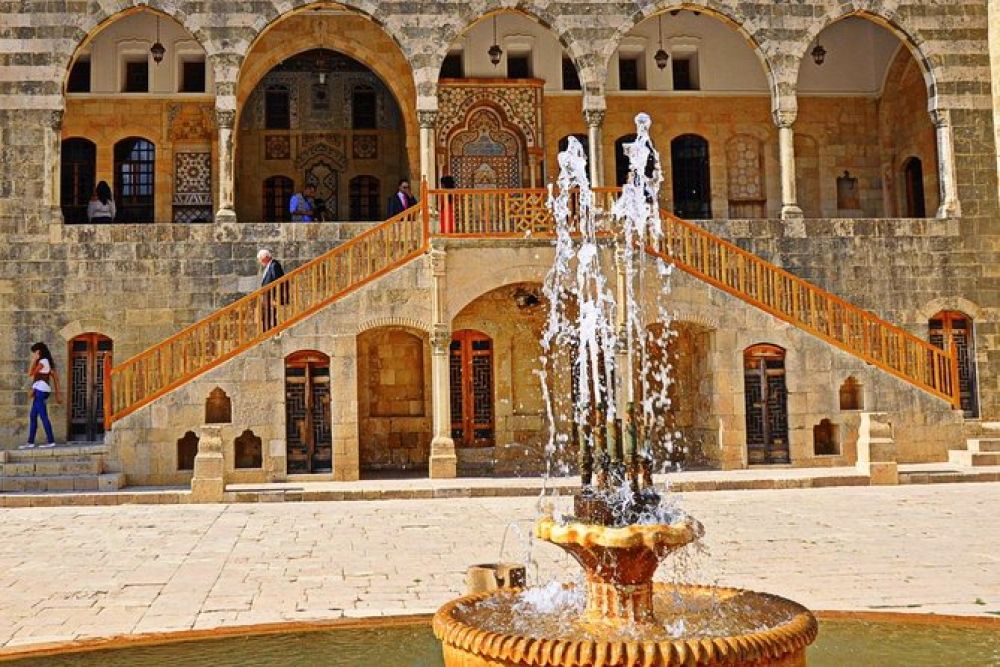

The National Museum of Beiteddine is housed in the Beiteddine Palace, which is a stunning example of 19th-century Lebanese architecture nestled in the Chouf Mountains. The palace complex, with its rich history, hosts Lebanon's vibrant cultural heritage, including a variety of traditional crafts and arts. Lebanese cuisine, known for its diversity and history of thousands of years, is an integral part of this cultural fabric. Beiteddine, as with much of Lebanon, has been influenced by various civilizations that have passed through or settled in the region, including the Phoenicians, Romans, and Ottomans, each leaving their mark on the culinary traditions.
Within this historical context, food at Beiteddine would have been synonymous with Levantine cuisine, reflecting a blend of local ingredients, such as olives, wheat, and grapes, with an array of spices and cooking techniques brought in from the far corners of the Ottoman Empire. Vegetables, legumes, and grains are central to the Lebanese diet, making it rich in both vegetarian and non-vegetarian options.
Mir Amin Palace Restaurant
Address: Mir Amin Palace Hotel, Beiteddine, Lebanon
Famous Food: Shish Taouk (Non-veg)
Al Sultan Brahim Beiteddine
Address: Near Beiteddine Palace, Chouf Mountain, Lebanon
Famous Food: Seafood and traditional Lebanese meze (Varies Vegetarian/Non-vegetarian options)
Restaurant Baladi
Address: Main street, Beiteddine, Lebanon
Famous Food: Homemade traditional Lebanese dishes (Varies Vegetarian/Non-vegetarian options)